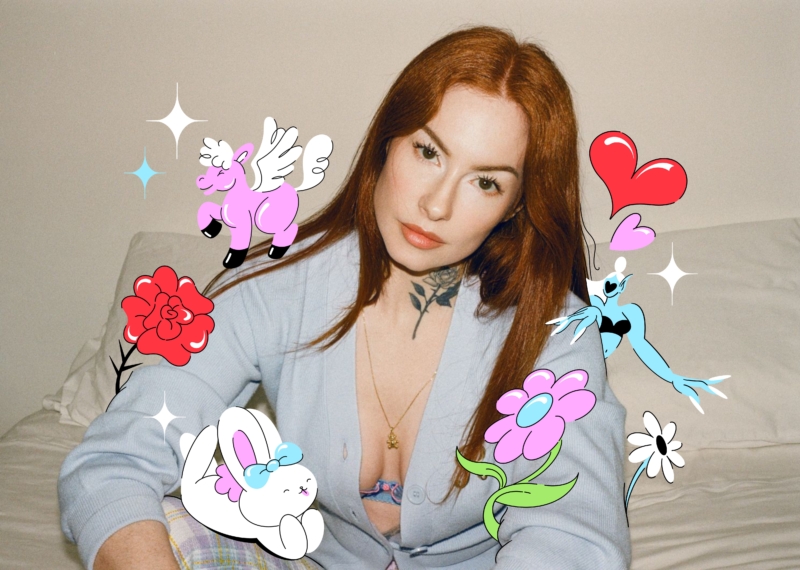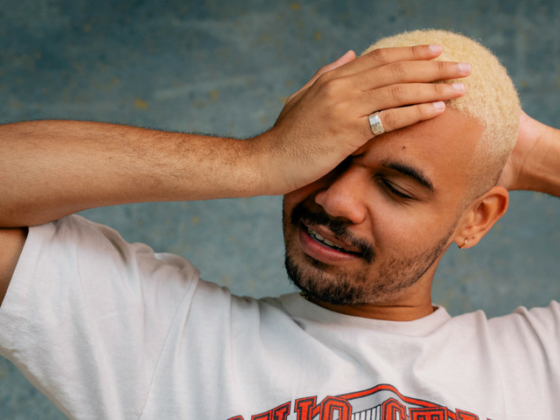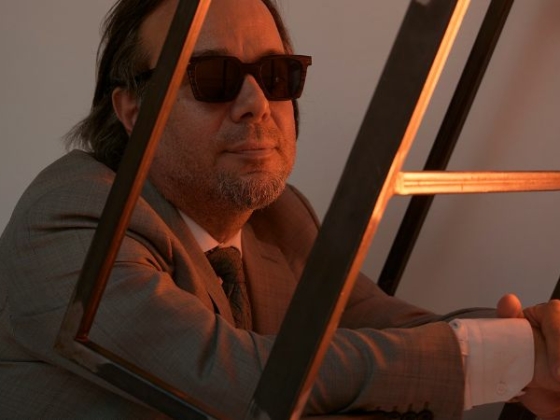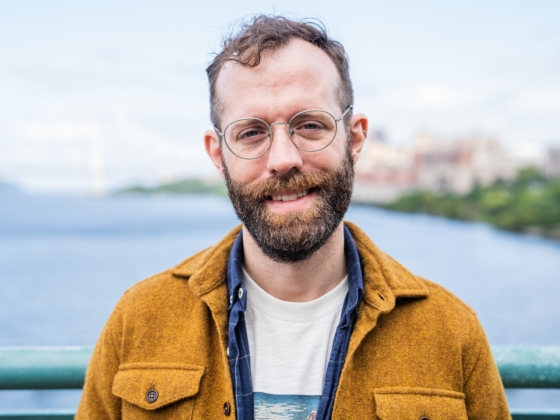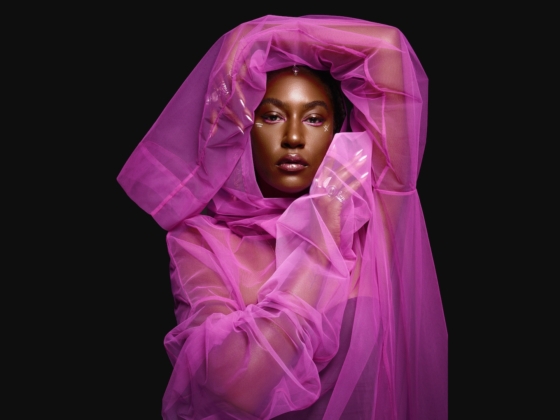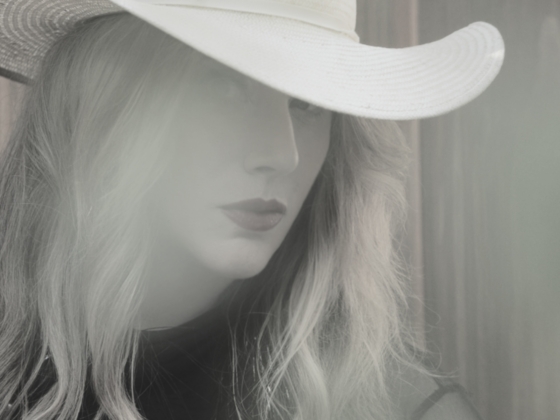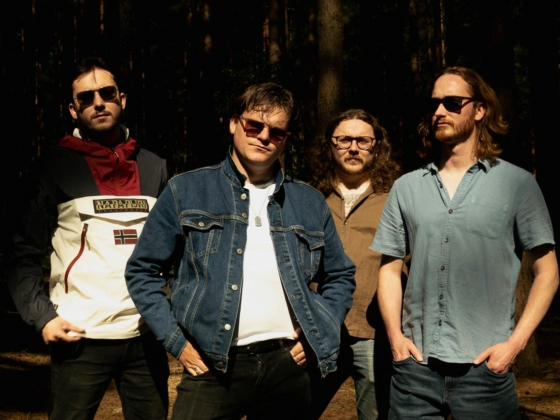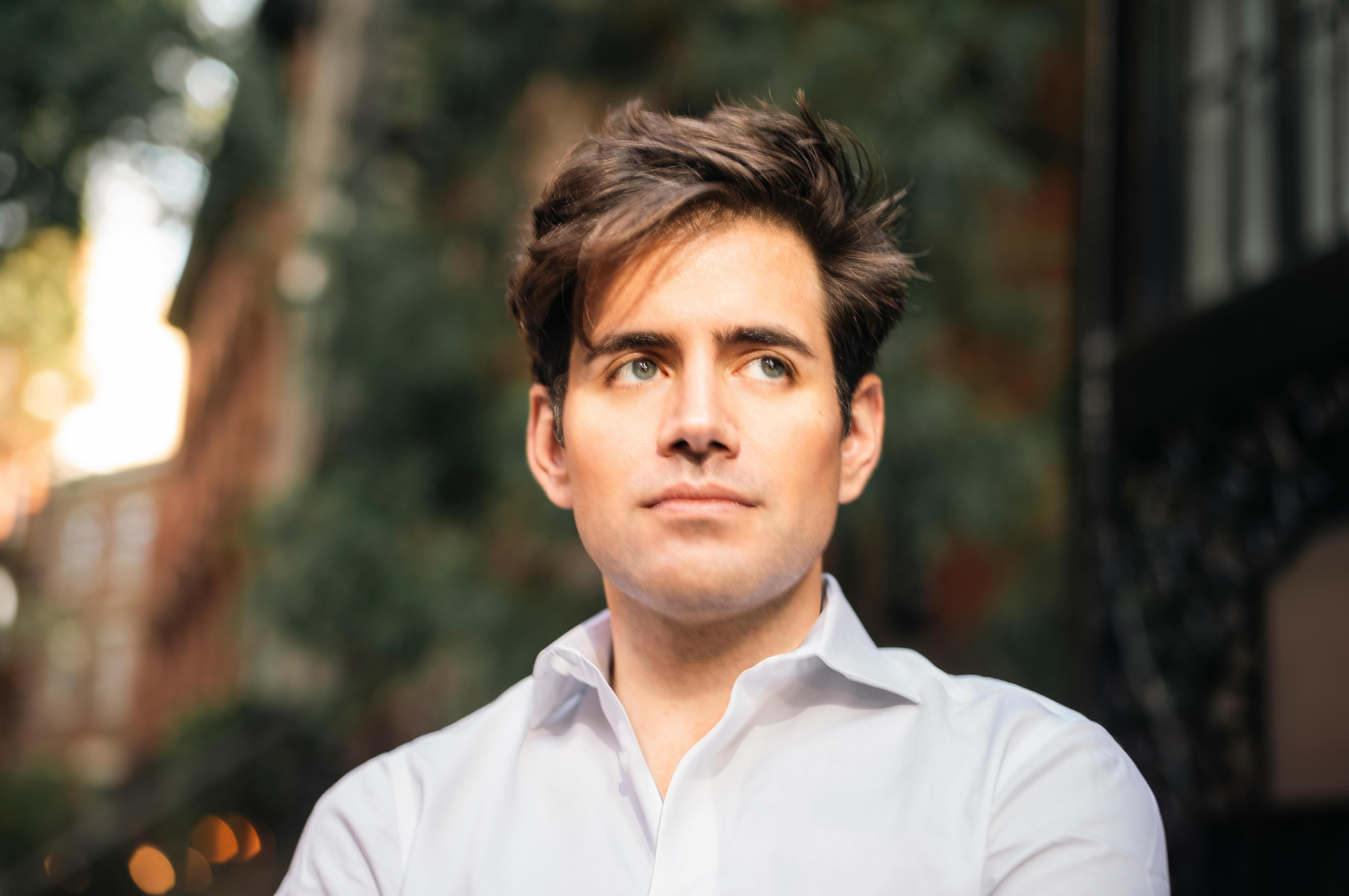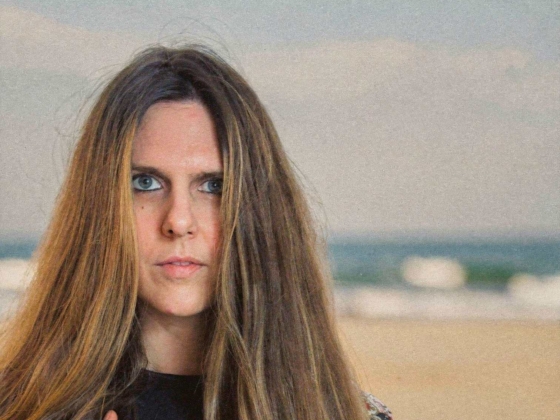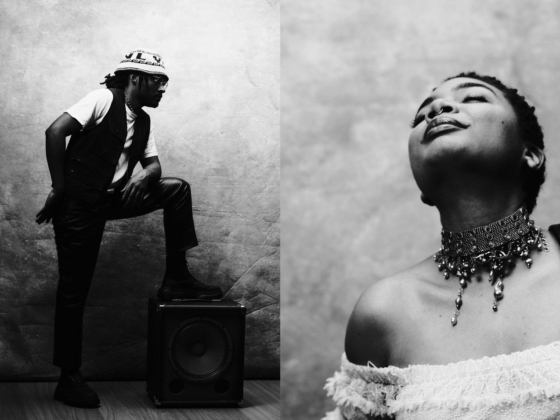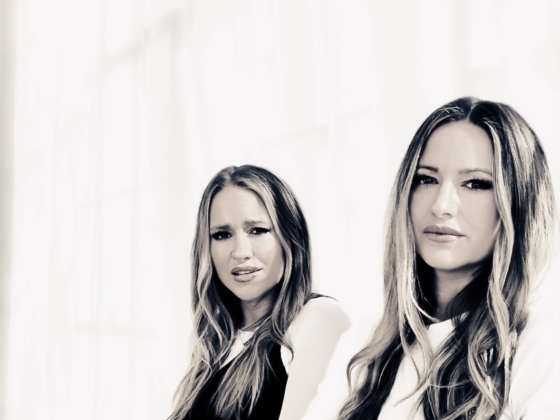Alternative R&B singer/songwriter/producer Red Rosamond is breaking new ground with her brand of music ripe with raw emotions, authentic lyrics, and an undeniable vocal presence. She recently went viral with “Inside” featuring Chris Avantgarde which also became the theme song for Netflix’s #1 Harlan Coben thriller Fool Me Once and now she is back with her full-length debut album entitled WIP aka Work In Progress. The 6 track project is produced and written by Rosamond and polished with the help of GRAMMY-winning engineers Neal Pogue and Mike Bozzi. The project boasts powerful tracks that dive into love, loss, and the constant progression of this thing called life. She explains further “‘WIP’ is a reflection of life as a continual work in progress, an ever-evolving journey of growth and self-discovery."
To discover what makes Red Rosamond tick, we had a quick chat with her on all things music below.
Your sound is so unique. Can you walk us through your creative process? How do you approach blending R&B and soul with alternative influences?
I LOVE music. My sound comes from years of listening, learning, and absorbing from the greats that came before me. I am a student of music and have not stopped being excited about it. I have one requirement for what I gravitate towards musically and that is that it makes me FEEL something. My brain is the type that, when I love something, I like to learn everything I can about it and everything that inspired it. Then go down the endless rabbit hole researching what inspired that and so on and so forth. To find the roots. I crave understanding the totality of how something I love became what it is. Every singer, every musician, every songwriter, every producer, every arranger… They all have a story.
My approach is to learn my skillsets to the point that thought is removed from the equation and my instincts can lead the way. I worked on this album alone at home, above a garage of all places. I think being in solitude is a big part of my process. Quieting the noise and channeling from that space of clarity. Being alone, I felt a safety to express myself and my emotions that is different than when I am in the room with other people. I also think the years of listening, learning, and absorbing built a foundation of not just an understanding of what I feel is great, but a library to reference. I’m talking everything from music to art to film to fashion to culture to books to… you name it. All of it influences my sound.
How do you balance vulnerability and strength in your lyrics, especially in such a personal genre like R&B/soul?
My life is a continual balancing act of vulnerability and strength. In my eyes, vulnerability is strength and strength is vulnerability. They are one in the same, expressed/perceived in different ways. I’m a libra and one of the most libra things about me is my constant need to recalibrate to find balance. I am only interested in making music that makes people feel something. I believe, in order to do that, one has to be vulnerable. Whether I am telling my own story or stories of others, balancing vulnerability and strength is imperative because it’s human. Everyone has been through something. Vulnerability is the crack that lets the light in for the strength to shine through.
R&B and soul have such deep roots in music history. How do you feel your music contributes to or challenges those traditions?
Out of my deep love, appreciation, and respect for the music that has come before me, my hope is to contribute by using my gifts to honor it. I’m Red. There is never going to be another Aretha, Etta, Nina, Ray, Otis… Just like there is never going to be another Mahalia, Billie, Nat, or Little R. All I dream of is carrying the torch forward in my own way, in my own voice, while honoring those who came before me.
Do you ever feel pressure to conform to mainstream sounds, or do you prefer to stay true to your experimental roots?
I don’t feel that way anymore, but I did feel enormous pressure to conform while living in LA, just trying to survive. Most of my time was spent in sessions with pop writers, producers, and investors. A lot of people didn’t fully understand my music because it was different — it’s one of a kind. But that’s not on them; they were coming at it from their own reference points, based on what they knew and what they knew would sell. To them, what I did wasn’t “proven;” it was too much of a risk.
For a while, I thought the right move was to play along, to fit in so I could get to that next step—where I’d have the financial freedom to return to what I truly love and who I am as an artist. But I learned that not only does that not work — you can’t fit a square peg into a round hole — it also robs you of your happiness and joy. So, right before the pandemic, my husband and I made the difficult decision to move to Canada, where I’m from, to give me the time and space to focus on what I loved again, instead of draining our souls and resources trying to survive in a system that didn’t appreciate or understand what I was trying to create. That move worked out for the better because I finally taught myself how to produce and made my new album WIP.
Your lyrics often touch on emotional and personal experiences. Is there a specific life event or moment that has significantly shaped your music?
More than an event or moment, I am a hypersensitive human, who is neurodivergent. I absorb a lot, all of the time. I also process slower than others and in my own way. One of those ways is channeling that energy, those emotions and experiences, into music. My lyrics are oftentimes a collage made up of pieces of my life and pieces of others.
Mental health and self-love are recurring themes in your music. How do these topics intersect with your personal life and creative journey?
I have struggled and been open about my mental health struggles my whole life.
Self-love is truly at the core of my music. My hope is that through sharing all aspects of myself with the world – my struggles, joys, imperfections, dreams etc. – is that the listener will feel validated and seen. Music is healing. I want to create a safe space for people to embrace their totality. I want people to know that you can be empowered by your pain, your imperfections, your journey. That at any moment you can claim yourself and do the work and change your life. I want them to know that you can fall down over and over again and still chose to get back up, to have hope and faith in yourself. That it’s ok to be both happy and sad or simply, angry and hurt. Whatever it is you are feeling, it’s ok. I think now more than ever with the way things have shifted with social media and online living, people need to know they don’t have to present “perfect” to be loved or to be seen and that it’s good to feel and share and be real with one another.
What does being an “alternative” R&B artist mean to you? How do you feel about labels in the music industry?
Truthfully, I don’t identify with any label. I find it incredibly difficult to put my art into a box, nor do I really want to. For the sake of delivering my music to online streaming platforms I have had to label it, but I prefer a limitless approach to creation.
Do you find that performing live alters the way you interpret or feel about your own songs? What’s your favorite part of live performances?
Performing live doesn’t change the way I interpret a song, but having the element of a live audience giving me energy and having that exchange with one another can be deeply profound and different to the recording process. That aspect is my favorite part of performing live. I love looking into people’s eyes and feeling them feel my songs. There have been instances where I am singing, and I look out and lock eyes with someone and really connect with them and that to me is the most beautiful exchange. I am gifting them, and at the same time, they are gifting me with our shared gratitude, presence, and willingness to be vulnerable. It’s so beautiful.
What’s a dream project or collaboration that you haven’t done yet but would love to?
Tyler The Creator. Kanye West. Kendrick Lamar. Andre 3000. Eminem.
Looking back, how do you want your music to be remembered? What kind of legacy do you hope to leave?
I hope to leave a legacy that empowers people. A legacy that speaks to resilience, to growth, to creating your own path, to living your own truth. A legacy that promotes acceptance, compassion, and healing. A legacy that celebrates creativity and innovation. A legacy that shows little girls that they can do anything they want to do. A legacy that is for the dreamers to simply continue dreaming.
Photo credit: Chase Lisbon & visual artist: Marylou Faure
Connect with Red Rosamond: Instagram | TikTok | Facebook | Twitter | YouTube | Spotify | Apple Music

